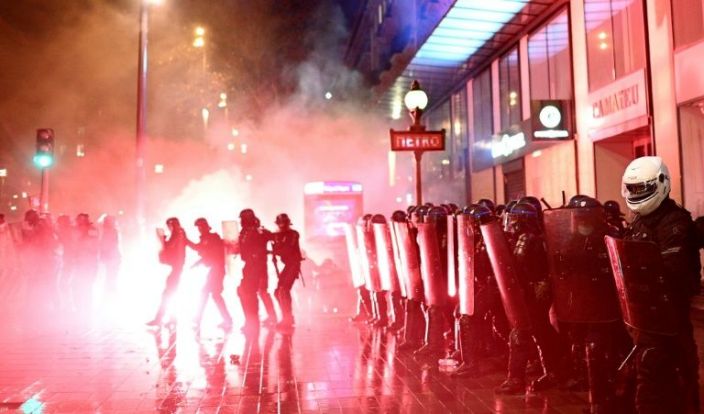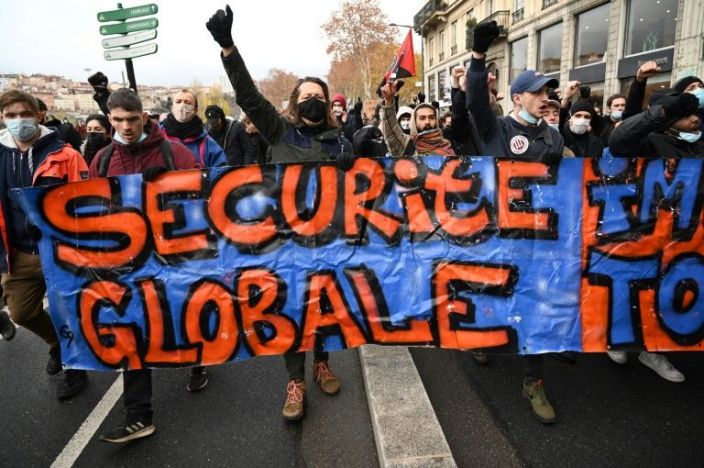Tens of thousands of protesters took to the streets in France Saturday for a third consecutive weekend of demonstrations over a controversial security bill that would limit filming of the police.
The authorities had been bracing for further possible violence after the last two such protests in Paris ended in rioting.
But there were no major flare-ups as several thousand protesters -- the organisers claimed a turnout of 10,000 -- flanked on all sides by riot police marched through the city.
The demonstrations attracted around 60,000 people across the country, according to organisers, while the interior ministry put that number at over 26,000.
"Global repression, total regression," read a placard held aloft by one demonstrator in the capital, a reference to the new "global security" bill which bans the "malevolent" publication of images showing the faces of police officers in action.
Interior Minister Gerald Darmanin tweeted that "several hundred thugs had come to commit violence" in Paris.
"The robust strategy against the thugs -- 142 arrests and containment of the march -- made it possible to prevent them from doing so and to protect shop owners," he said.
Demonstrations were also held in Lyon, Montpellier, Strasbourg, Lille, Bordeaux, Toulouse and Marseille.
Critics argue that the security bill, which has been adopted by the lower house of parliament, will make it harder for journalists and citizens to document cases of police brutality.
Footage of white police beating up an unarmed black music producer in his Paris studio on November 21 amplified anger over the legislation, widely seen as signalling a rightward lurch by President Emmanuel Macron.
Other incidents caught on camera have shown police in Paris using violence to tear down a migrant camp.
In the face of mounting protests, Macron's ruling LREM party announced it would rewrite the bill's controversial Article 24, dealing with filming the police.
|
|
| Outside the capital, demonstrations were held in Lyon, pictured here, as well as Montpellier, Strasbourg, Lille, Bordeaux, Toulouse and Marseille. Photo: AFP |
But the announcement fell short of the mark for left-wing protesters and rights groups, who are demanding that the law be completely withdrawn.
In scenes reminiscent of the "yellow vest" anti-government protests of late 2018 and early 2019, shop windows were smashed and vehicles set alight last week in Paris as small groups of demonstrators clashed with police.
On Saturday, the police arrested several anarchist "black bloc" demonstrators in the middle of the crowd in Paris.
'Blurry cop'
Demonstrating in Montpellier, 49-year-old doctor Anne-Marie Briand said she considered her "duty as a citizen is to ensure respect for our rights".
She carried a banner reading "a blurry cop is a dodgy cop" -- referring to the law's ban on publishing images that allow an officer to be identified where the intention is to cause the officer "physical or psychological harm".
The recurring allegations of racism and brutality against the police have become a major headache for Macron.
In a letter to a police union leader on Monday, he announced plans for a summit in January on how to improve relations between the police and communities.
"There is urgent need to act," Macron said in the letter to the Unite-SGP-FO police union, adding that the summit would also address the police's longstanding complaints over working conditions.






















































